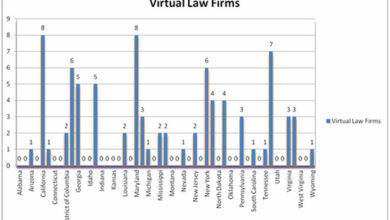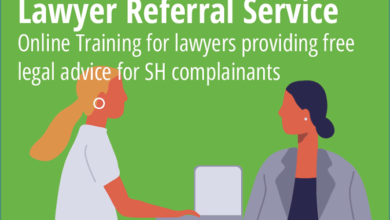Essential Questions to Ask Before Hiring a Lawyer
When faced with legal issues, it is crucial to find the right lawyer who can guide you through the complexities of the legal system. However, with so many lawyers out there, how do you choose the best one for your specific situation? To ensure you make an informed decision, it is vital to ask certain key questions before hiring a lawyer. These questions will help you evaluate their expertise, experience, and suitability for your case. In this article, we will explore the essential questions you should ask before hiring a lawyer, providing valuable insights to help you make the right choice.
1. What is your area of expertise?
Law is a vast field with numerous specialties. It is important to hire a lawyer who specializes in the area of law that is relevant to your case. For example, if you are facing a divorce, hiring a lawyer who primarily handles criminal cases may not be the best choice. By asking about their area of expertise, you can ensure that the lawyer has the necessary knowledge and experience to handle your specific legal matter.
2. How long have you been practicing law?
Experience plays a significant role in the legal profession. Lawyers who have been practicing for a longer period of time often have a deeper understanding of the law and the legal system. While newly graduated lawyers can be highly competent, it may be beneficial to choose a lawyer with a proven track record of success. By inquiring about their years of experience, you can gauge their level of expertise and determine if they are the right fit for your case.
3. Have you handled similar cases before?
Every legal case is unique, but finding a lawyer who has successfully handled similar cases can be advantageous. By asking about their experience with similar cases, you can gain insight into their familiarity with the legal issues involved and their ability to navigate through complex legal procedures. A lawyer who has dealt with similar cases in the past is more likely to have insights and strategies that can benefit your case.
4. What is your success rate?
When hiring a lawyer, you want someone who has a track record of success. While no lawyer can guarantee a particular outcome, asking about their success rate can give you an indication of their ability to achieve favorable results. A high success rate may indicate that the lawyer has the skills and knowledge necessary to effectively represent your interests.
5. What is your fee structure?
Discussing the fee structure upfront is essential to avoid any surprises later on. Lawyers have different billing methods, such as hourly rates, flat fees, or contingency fees. By understanding their fee structure, you can assess whether it aligns with your budget and determine if the lawyer’s services are affordable for you. Additionally, inquire about any additional costs, such as court filing fees or expert witness fees, to get a complete picture of the potential expenses involved in your case.
6. How will you communicate with me?
Effective communication between you and your lawyer is vital throughout the legal process. Ask the lawyer about their preferred method of communication, whether it be email, phone calls, or in-person meetings. Moreover, inquire about their availability and response time to ensure that they will be accessible to address your concerns and provide updates on your case.
7. Who will be working on my case?
In larger law firms, multiple lawyers may be involved in your case. It is important to know who will be primarily responsible for handling your case and who you will be communicating with. By understanding the team structure, you can ensure that you are comfortable with the assigned lawyer and confident in their abilities to handle your case effectively.
8. How long do you anticipate my case will take?
The duration of a legal case can vary significantly depending on its complexity and various other factors. While it is impossible to predict the exact duration, an experienced lawyer can provide an estimate based on their knowledge and past experience. By asking about the anticipated timeline, you can manage your expectations and plan accordingly.
9. What is your approach to resolving cases?
Lawyers have different approaches to resolving legal cases. Some may prefer aggressive litigation, while others may focus on negotiation and settlement. It is important to understand the lawyer’s approach and determine if it aligns with your desired outcome. For example, if you are seeking an amicable divorce, hiring an attorney known for their aggressive litigation tactics may not be the best fit.
10. Can you provide references from past clients?
One of the most effective ways to assess a lawyer’s abilities and reputation is by speaking with their past clients. Request references from the lawyer and contact these individuals to inquire about their experience working with the lawyer. This will give you firsthand insights into the lawyer’s professionalism, communication skills, and overall client satisfaction.
Conclusion
Choosing the right lawyer is a critical decision that can significantly impact the outcome of your legal matter. By asking the essential questions outlined in this article, you can evaluate the expertise, experience, and suitability of a lawyer before making your final decision. Remember to consider their area of expertise, years of practice, success rate, fee structure, communication style, and approach to resolving cases. Additionally, seeking references from past clients can provide valuable insights into the lawyer’s abilities and reputation. By conducting thorough research and asking the right questions, you can find a lawyer who is best equipped to handle your legal needs.
FAQs
1. How do I find a lawyer in my area?
There are several ways to find a lawyer in your area. You can start by asking for referrals from friends, family, or colleagues who have had positive experiences with lawyers. Additionally, you can consult online directories, bar associations, or legal referral services to find qualified lawyers in your area.
2. What should I bring to my initial consultation with a lawyer?
For your initial consultation with a lawyer, it is helpful to bring any relevant documents related to your case, such as contracts, legal notices, or correspondence. Additionally, prepare a list of questions to ask the lawyer to ensure you gather all the necessary information.
3. Can I negotiate the lawyer’s fee?
In some cases, you may be able to negotiate the lawyer’s fee. However, this depends on various factors, such as the complexity of your case and the lawyer’s billing practices. It is important to have an open and honest discussion about fees and negotiate if appropriate.
4. What if I am not satisfied with my lawyer’s services?
If you are not satisfied with your lawyer’s services, it is important to address your concerns directly with the lawyer. Communicate your issues and give them an opportunity to address them. If the issues persist, you may consider seeking a second opinion or, in extreme cases, filing a complaint with the appropriate disciplinary authorities.
5. Can I change lawyers during my case?
Yes, you have the right to change lawyers during your case if you are not satisfied with their services or if circumstances change. However, it is important to consider the potential impact on your case and consult with a new lawyer before making any decisions.
Summary
Choosing the right lawyer is crucial to ensure the best possible outcome for your legal matter. Before hiring a lawyer, it is essential to ask certain key questions to evaluate their expertise, experience, and suitability for your case. Questions about their area of expertise, years of practice, success rate, and fee structure can provide valuable insights into their capabilities. Additionally, inquiring about their communication style, approach to resolving cases, and seeking references from past clients can further help in making an informed decision. By conducting thorough research and asking the right questions, you can find a lawyer who is best equipped to handle your legal needs and guide you through the complexities of the legal system.









